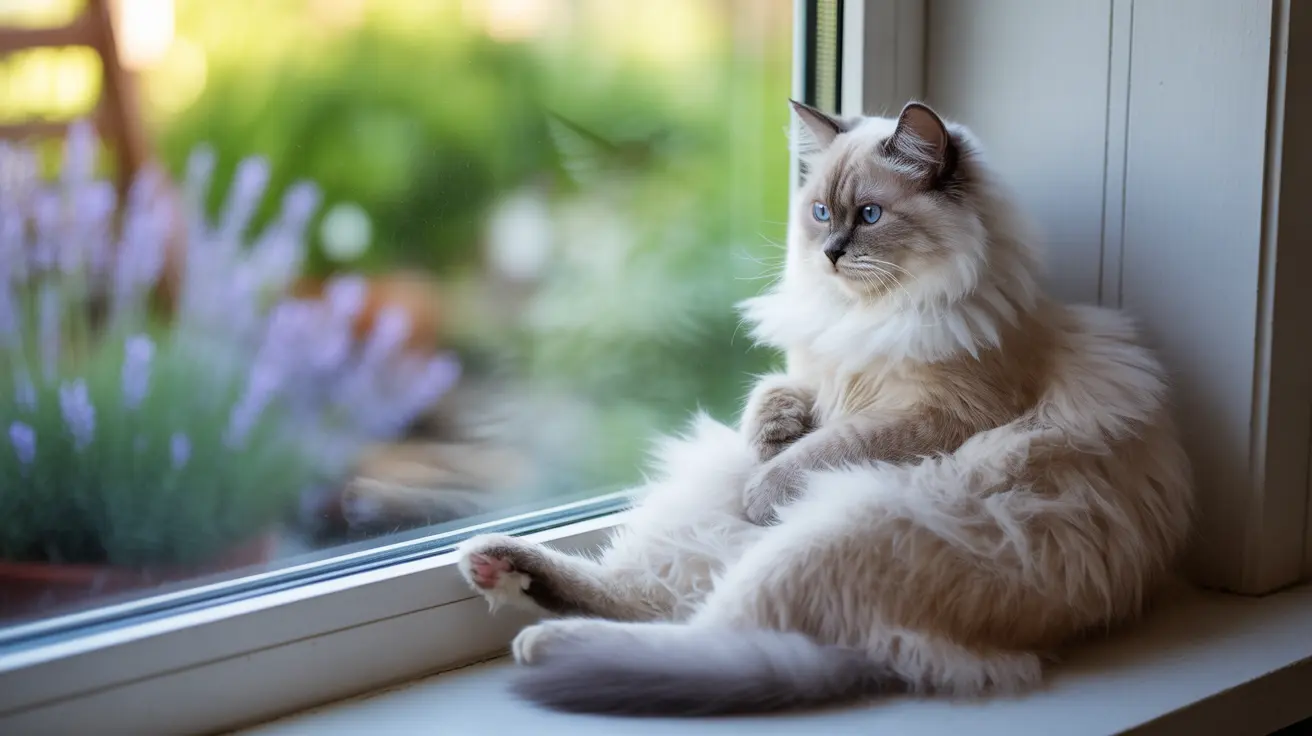When your cat stops grooming, it's more than just a cleanliness concern – it's often a warning sign that something isn't quite right. Cats typically spend up to half of their waking hours maintaining their coat, making any sudden change in this natural behavior a potential red flag for their health and well-being.
Understanding why your cat has stopped grooming and knowing how to address this change is crucial for maintaining their overall health. Let's explore the various reasons behind this behavior change and discover effective solutions to help your feline friend return to their normal grooming routine.
Common Medical Causes of Decreased Grooming
Several health conditions can impact your cat's ability or desire to groom themselves properly:
Physical Limitations and Pain
Arthritis and joint pain, particularly common in senior cats, can make it difficult or painful for cats to reach certain areas of their body. Obesity, affecting over 50% of domestic cats, similarly restricts their ability to maintain proper grooming habits.
Dental and Oral Issues
Dental disease, mouth injuries, or oral infections can make grooming uncomfortable or painful. When cats experience mouth pain, they're less likely to engage in their usual grooming routine.
Underlying Health Conditions
Various illnesses, including kidney disease, thyroid problems, and skin conditions, can affect your cat's energy levels and grooming motivation. These medical issues often require veterinary intervention to restore normal grooming behavior.
Behavioral and Environmental Factors
Stress and Anxiety
Changes in the household environment, such as moving to a new home, introducing new pets, or altering daily routines, can significantly impact your cat's grooming habits. Cats may stop grooming when feeling anxious or overwhelmed.
Age-Related Changes
Senior cats often experience decreased flexibility and energy levels, making thorough self-grooming more challenging. They may need additional support to maintain their coat health.
Signs Your Cat Needs Help With Grooming
Watch for these indicators that your cat's grooming habits have changed:
- Matted or greasy fur
- Unusual odors
- Visible dirt or debris in the coat
- Increased shedding
- Dull or unkempt appearance
- Accumulation of litter in fur
How to Help Your Cat Return to Normal Grooming
Veterinary Assessment
Schedule a check-up to rule out medical conditions and receive appropriate treatment if needed. Early intervention can prevent more serious complications.
Grooming Assistance
Establish a regular grooming routine to help your cat maintain their coat health:
- Use appropriate brushes for your cat's coat type
- Start with short grooming sessions
- Create positive associations through treats and praise
- Focus on problem areas while being gentle and patient
Environmental Modifications
Make grooming easier and more comfortable for your cat by:
- Providing elevated grooming spots
- Ensuring easy access to favorite grooming locations
- Maintaining a stress-free environment
- Offering multiple scratching posts and surfaces
Frequently Asked Questions
Why has my cat suddenly stopped grooming itself and what health issues could be causing this?
Sudden cessation of grooming can be caused by various health issues including arthritis, dental problems, obesity, or underlying medical conditions. Any abrupt change in grooming habits warrants a veterinary examination to rule out serious health concerns.
How can I help an older cat with arthritis that struggles to groom properly?
Assist your senior cat by providing regular gentle brushing, keeping them at a healthy weight, and working with your vet to manage arthritis pain. Consider using pet steps or ramps to make favorite grooming spots more accessible.
What are the risks if my cat is not grooming regularly or has matted fur?
Poor grooming can lead to skin infections, matted fur, increased parasitic infections, and hidden health issues. Matted fur can cause pain, restrict movement, and lead to serious skin problems if left untreated.
How do stress or environmental changes affect my cat's grooming habits?
Cats are sensitive to environmental changes, which can lead to decreased grooming due to stress or anxiety. Maintaining routine, providing safe spaces, and gradually introducing changes can help minimize stress-related grooming issues.
When should I take my cat to the vet if I notice it's not grooming itself?
Seek veterinary care if you notice sudden changes in grooming habits, especially if accompanied by other symptoms like changes in appetite, weight loss, or behavioral changes. Early intervention is key to preventing more serious health issues.
Remember, maintaining your cat's grooming habits is essential for their overall health and well-being. By staying attentive to changes in their grooming behavior and providing appropriate support, you can help ensure your feline friend stays healthy and comfortable throughout their life.






